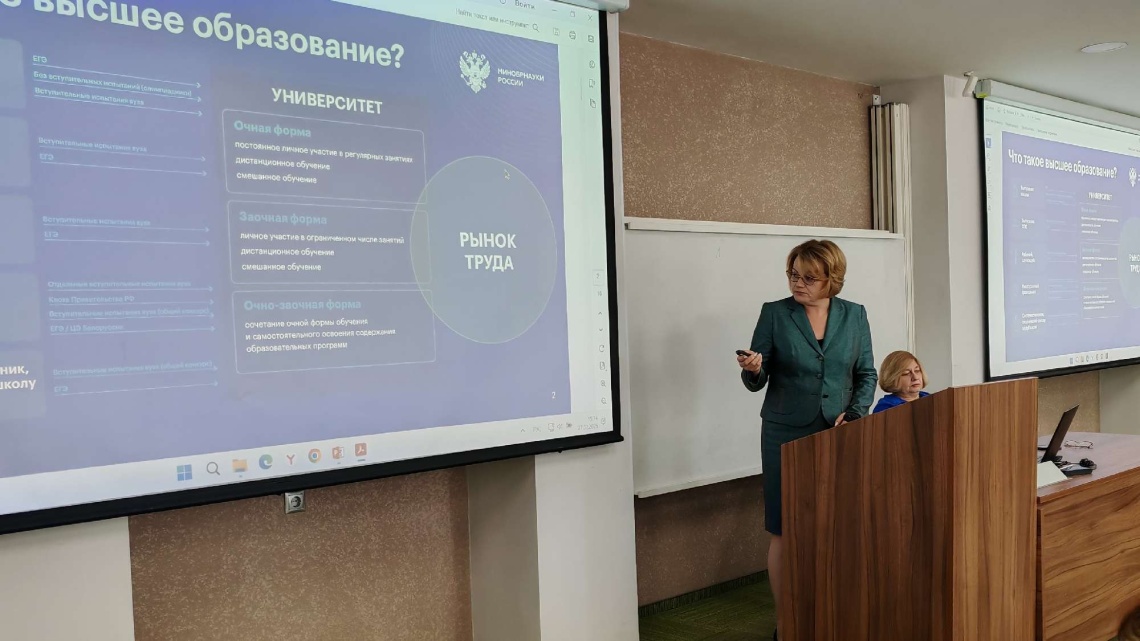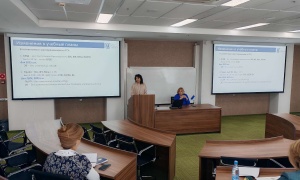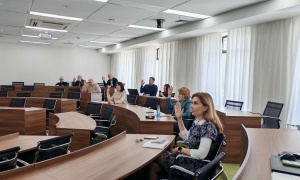
IEM Academic Counsil discussed the forthcoming transformation of higher education
During the session of IEM Academic Counsil besides current affairs the forthcoming transformations of higher education to be implemented from 2027 were discussed.
During the first part of the session the Director of Bachelor’s Program Office Elena Yatkina spoke about the results of midterm attestation. The members of the Academic Council also discussed the actualization of academic curriculums for bachelor’s, specialist and master’s programs.
Then Director of IEM Mater’s and Postgraduate Programs Office Maria German presented the key aspects of the higher education transformations. Among those are:
- Unification of bachelor’s and specialists’ programs - these two degrees will merge into one program named “higher education”. The course duration for this basic level of the higher education will be from 4 to 6 years (4 for economists), when for master’s degree from 1 to 4 years.
- New qualifications: instead of usual degrees it’s the qualification that will be specified in diplomas which, according to experts, will made those programs more attractive for the applicants.
- Curriculum revision: from 2027 all universities will implement new curriculums which requires changing subject content and adaptation of professors for the new requirements.
- Additional financing for top priority and engineer programs.
- The academic programs will be oriented towards baseline, general professional and expertise competences.
- Extensive use of electronic student achievement sheets.
- First two years will be dedicated to fundamental and social humanitarian studies, next two years to the professional programs which each university will develop by itself.
- State-funded Master’s education will be available either for bachelor’s and specialist’s graduates. But there will be some restrictions - for research or professional master’s programs the previous degree must be in the same field. There is no such restriction for management master’s programs.
IEM Director Evgenia Nekhoda mentioned that the forthcoming changes will require active participation by professors and students and their adaptation for the new realities. It is important to make a head start of preparations for the new standards to keep the changing process smooth and save the quality of education.


